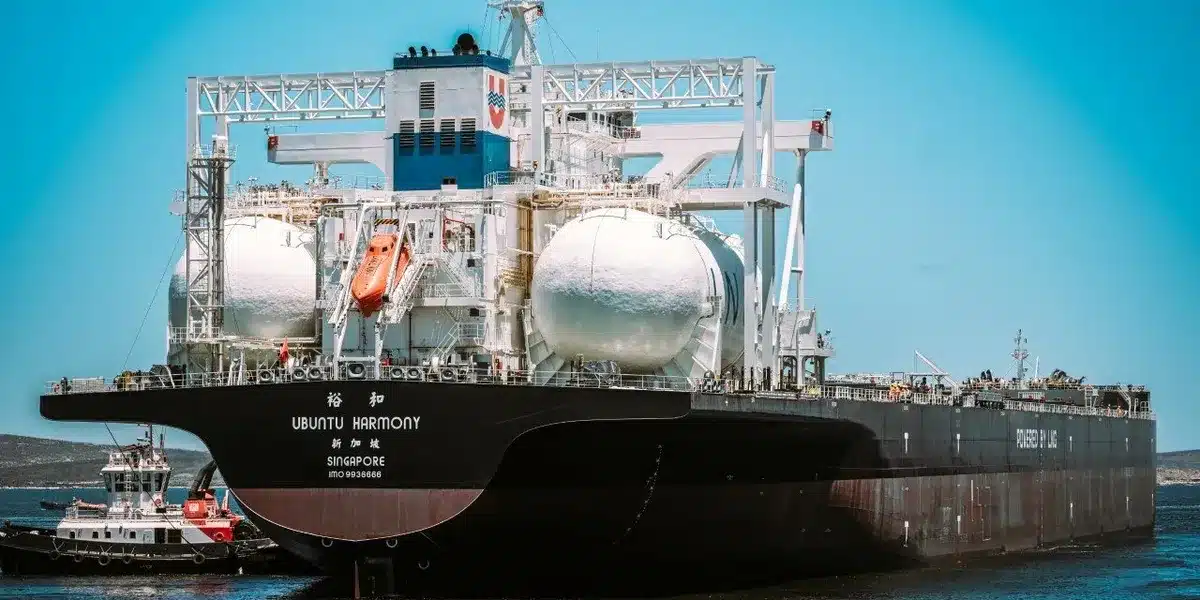Ubuntu fleet keeps Anglo American shipping going green
Anglo American's Bold Move Towards Sustainable Shipping

Anglo American’s shipping chief, Peter Lye, expressed confidence in the company’s Ubuntu fleet, which consists of ten LNG dual-fuel capesize bulk carriers. These vessels are seen as a significant step towards sustainability in maritime operations. Lye noted that the timing of their acquisition was fortunate, as they navigated high prices in the newbuild market, making this investment a pivotal commitment for the company.
Strategic Investment and Fleet Management
Anglo American’s Ubuntu fleet represents 20% of its total shipping capacity, with the ability to transport up to 10 million tonnes of the company’s products if fully dedicated to its operations. The company strategically approached shipowners to finance the construction of these vessels, which are then chartered back to Anglo American for ten years. This innovative financing model has proven successful, according to Lye, who stated that the project has progressed smoothly.
The fleet, delivered by Chinese shipbuilder Shanghai Waigaoqiao between 2022 and 2024, includes four ships owned by Taiwan’s U-Ming and two by Greece’s Maran Tanker Management. Additionally, four vessels are funded by the Bank of Communications Financial Leasing (BoCom). Anglo American has secured long-term charters for six of these vessels while leasing the BoCom ships, with technical management assigned to Anglo-Eastern Ship Management. This fleet is crucial to the company’s goal of reducing shipping emissions, although Lye acknowledged the challenges in maintaining a sustainable approach.
In July, Lye revealed that the vessels were burning more Very Low Sulfur Fuel Oil (VLSFO) than LNG due to market conditions. The company frequently alternates between diesel and LNG based on route requirements and commercial factors, ensuring that LNG tanks do not run dry. This flexibility is essential for optimizing operational efficiency while striving for sustainability.
Challenges in Sustainable Shipping
Despite the advancements, Lye highlighted the significant hurdles facing Anglo American’s sustainability initiatives, particularly the high costs associated with alternative fuels and the expenses involved in converting vessels to alternative fuel systems. He pointed out that customers are often unwilling to absorb these additional costs, which ultimately fall on the company. For instance, the premium for biofuels like B100 can reach $200 per metric tonne, compared to $50 for B30, leading to increased freight costs that many customers resist.
Moreover, Lye raised concerns about the practicality of converting vessels to use alternative fuels such as ammonia, given the current lack of availability. He questioned whether investing an additional 15% to 20% to upgrade to ammonia dual-fuel vessels would be justified if the fuel remains underutilized. Lye emphasized the need for a balanced approach, stating, “We don’t sacrifice the good for the perfect.” He believes that achieving a 10% to 15% reduction in emissions is a worthwhile goal, even if it does not meet the ideal standards of sustainability.
Overall, Lye acknowledged that the journey towards greener shipping practices will continue to be fraught with challenges, but the commitment to exploring viable solutions remains strong.
